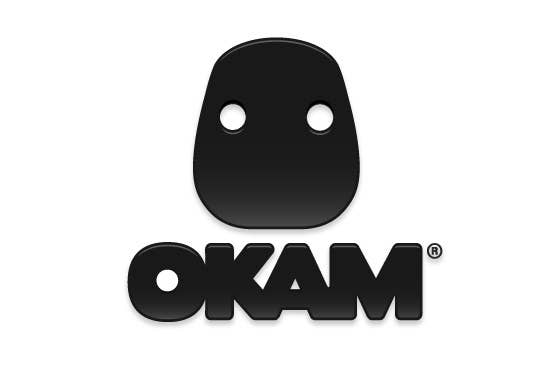Developers Without Borders
Okam Studio co-founder Martina Santoro on the perks and pains of the fast-growing Latin American games market
The borders of the gaming industry are frequently drawn around the US, Europe, and Asia, but there are lots of developers--and potential customers--beyond those lines. Martina Santoro, co-founder and director of Buenos Aires, Argentina-based developer Okam Studio, has been trying to convince people of this. Santoro has been digging up research on the Latin American market specifically, and presented her findings in May at the Ottawa International Game Conference.
Speaking with GamesIndustry International last week, Santoro said it was a difficult process because there are only a few people really researching the Latin American market at the moment, but some of her findings suggest there should be a lot more. Santoro said there are about 60 million smartphones in Latin America, half of which are regularly used for gaming. On top of that, the region has shown the fastest smartphone growth in the world. And in terms of spending power, the Latin American market is comparable to China. According to Alta Ventures, China's population of 1.3 billion commands an average disposable income of a little over $2,200 per person ($2.9 trillion in total). The population of Latin America is less than half that, about 594 million, but commands an average disposable income over $4,700 ($2.8 trillion total).
"The amount of mobile devices [in Latin America] is doubling every year," Santoro said. "The biggest market is still Brazil, but it's amazing how in countries like Argentina, Chile, Mexico, Bolivia, Peru, Colombia, the access to information and the internet is growing very, very fast. I wasn't really expecting that."

Unfortunately, the biggest attractions of the Latin American market--its growth--goes hand-in-hand with its biggest challenges. The gaming industry there is still young, and it lacks some of the infrastructure one might take for granted in a more established market. The single biggest challenge Santoro pointed to is payment methods. Credit cards aren't as ubiquitous in Latin America as they are in the US and Europe, and even for those with credit cards, paying for content from another country can carry surcharges. Billing directly to users' carriers isn't a viable alternative, partly due to infrastructure issues and partly because telecom companies can require an exorbitant cut of revenues for games purchased that way. Publishers have been working around the issue to date with tactics like selling pre-paid cards in drug stores and super markets or having people pay by SMS, the same way charities might collect donations here. These hurdles impact the business model, which in turn impacts the games being made. For example, game developers have had to learn that designing games that rely on impulse purchases isn't nearly as effective in Latin America.
"[W]e've had companies that have grown a lot for big projects and then needed to downsize...For a strong industry, we'll need more projects to come in and maintain the studios."
Martina Santoro
Piracy and localization are two more concerns publishers have had with working in Latin America, but Santoro said both situations are improving. Digital distribution and the free-to-play business model have both helped cut down on piracy, and Steam in particular has proven more successful than many retail stores in the region. As for localization, Santoro said companies are starting to put more effort into the task, and are being rewarded for it. One faux pas she sees less these days is the use of Iberian Spanish instead of Latin American Spanish.
"For many years, the products for here were dubbed by Spanish people," Santoro explained. "So gamers, especially hardcore gamers, preferred to buy games in English directly from the US. So when big studios did their marketing research, the results said that Latin Americans weren't spending money on games. But the fact was they were; they were just spending it in the US market."
For Latin American developers, the industry's youth can be seen in the difficulty of educating new hires. Santoro said there's plenty of talent in Argentina, but there are few academic programs to shape them into professional game developers. And without colleges teaching how to do this for a living, people might not even consider development as a possible career.
"On the human resources side, in Argentina it's pretty hard to tell your parents you're going into the video game industry," Santoro said. "If you studied programming, then it's something your parents think is good because you'll work for a bank or something. But it's difficult when you tell your parents you're going to start a video game studio and make games when they don't have a clue what you're going to do. My mother doesn't know what I do. She doesn't get it. She accepted it after a time, but not everyone knows it's an option to make a living out of this."
One more problem Okam and other Latin American developers have had to face is the at-times inconsistent flow of available work.
"We're trying to create an industry, so it's been hard to get the projects going in a very fluid way," Santoro said. "So we've had companies that have grown a lot for big projects and then needed to downsize. Stuff like that happens all the time. For a strong industry, we'll need more projects to come in and maintain the studios so people can grow and get more experience."

Challenges aside, Santoro said she's had some substantial advantages as a Latin American developer. Naturally, her team has a leg up making games targeted for the Latin American market, but Santoro said Okam's location in Buenos Aires means the studio is well-suited to creating content for the North American and European markets. Part of that is that the city's cosmopolitan makeup provides developers with an understanding of what works for global audiences, such as cultural tastes or sense of humor. On a practical level, Santoro noted Okam's time zone is shifted four hours from San Francisco and four hours from London, making regular conference calls possible without requiring odd hours. There are financial benefits as well, with government tax credits and
"We are kind of cost-efficient," Santoro admits. "We have highly trained professionals, and our costs for each of our team members is really low compared to big production houses in the US or Europe."
That's made studios like Okam attractive for foreign publishers looking to create less expensive games for their own markets, but Santoro says there's a shift going on.
"We've been learning a lot on how to make games for other markets," Santoro said. "Now it's changing. Games in Latin America are being made for Latin American consumers, so it should be interesting to know what we're able to do."
Okam is currently working on a number of projects, including a mobile game for the upcoming CG movie Foosball, and another project based on Dark Horse Comics' Dog Mendonça and PizzaBoy series about an overweight Portuguese werewolf and his unpaid intern.

